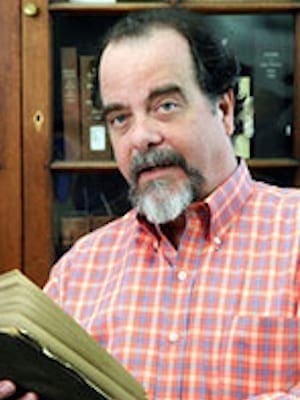The first generation of Christians had a difficult time negotiating their world. They embraced the good news Jesus proclaimed, “The Kingdom of God is at hand!”
Embracing that good news put Jesus’ followers at odds with a world comfortable with the kingdoms of humanity that had staked claims on all people.
On the one hand, Jesus’ followers knew they were “aliens and exiles” in a strange land (I Pet 2: 11). Because they placed their confidence in the Kingdom of God they knew the day-to-day influences of politics, economics and society had fewer claims on them than on others living in the world.
On the other hand, Jesus’ followers knew they had to live in the Roman world with integrity. It was, after all, the world they were in. Early Christians had a hard time negotiating their world and following the advice of Peter who wrote that they should “worship God” and “honor the emperor” (I Pet 2:17).
The stakes were high. Those first Christians had to figure out what to do with their dual citizenship. They embraced the Kingdom of God yet lived in the kingdoms of humanity.
The stakes are still high. They may even be higher in the wake of Sept. 11. Since then, there have been efforts to blur the lines between patriotism and nationalism, of faith and civil religion. The lines are exceedingly fine. Faithful patriots should guard them with care.
True patriotism is not blindly following the edicts of the land. Patriots are those whose lives are stirred and shaped by hope, the hope that a good life can get better, the hope that justice will prevail.
Authentic faith is not merely repeating the slogans of the popular majority. People of faith must reflect upon what the masses says and evaluate it. Faithful people should ask whether or not the majority opinion is consistent with the themes of faith guiding the community. Do they speak of liberty and justice, peace and hope? If not, then people of faith must risk their comfort to proclaim the short-sightedness of the popular majority.
Nationalism is a thin substitute for patriotism. Nationalism swaggers with an uncritical demand for uniformity, but calls it unity. Nationalism entertains one option, and belittles any dissenting voice. Nationalism narrows the identity of a people rather than embracing the possibility that diverse people can live together with integrity.
Civil religion loses the focus of faith and settles for a narrowed vision that cannot, and will not, see beyond the flawed passions of people seeking to maintain a social system rather than risking the adventure of something better. Civil religion transfers ultimate allegiance to something that can never carry the weight of the ultimate.
The stakes are high. They may never be higher.
Patriotism and faith are not the same thing. There is a difference between “honoring the emperor” and “worshiping God.” Failure to see the difference is the first step toward abandoning faith altogether, and living in the false security of the kingdoms of humanity, embracing a civil religion.
Richard Wilson is professor of theology and chair of the Roberts Department of Christianity at Mercer University in Macon, Ga. This piece was first published in the Macon Telegraph on Nov. 17, 2001.

